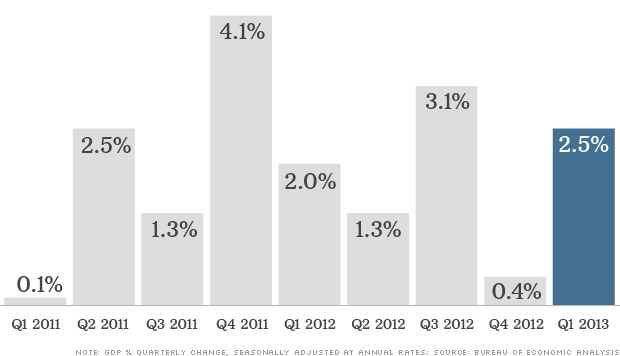HIV Cure may be ready in 'months'
 |
| Timothy Ray Brown, First person to be cured of HIV/AIDS |
Researchers believe that there will be a breakthrough in finding a cure for HIV “within months”.
Danish scientists are expecting results that will show that “finding a mass-distributable and affordable cure to HIV is possible”.
They are conducting clinical trials to test a “novel strategy” in which the HIV virus is stripped from human DNA and destroyed permanently by the immune system.
The move would represent a dramatic step forward in the attempt to find a cure for the virus, which causes Aids.
 |
With modern HIV treatment if medication is stopped, HIV reservoirs become active and start to produce more of the virus Photo: Alamy
|
The scientists are currently conducting human trials on their treatment, in the hope of proving that it is effective. It has already been found to work in laboratory tests.
The technique involves releasing the HIV virus from “reservoirs” it forms in DNA cells, bringing it to the surface of the cells. Once it comes to the surface, the body’s natural immune system can kill the virus through being boosted by a “vaccine”.
In vitro studies — those that use human cells in a laboratory — of the new technique proved so successful that in January, the Danish Research Council awarded the team 12 million Danish kroner (£1.5 million) to pursue their findings in clinical trials with human subjects.
These are now under way, and according to Dr Søgaard, the early signs are “promising”.
Dr Ole Søgaard, a senior researcher at the Aarhus University Hospital in Denmark who is part of the research team, said: “I am almost certain that we will be successful in releasing the reservoirs of HIV.
“The challenge will be getting the patients’ immune system to recognise the virus and destroy it. This depends on the strength and sensitivity of individual immune systems.”
Fifteen patients are currently taking part in the trials, and if they are found to have successfully been cured of HIV, the “cure” will be tested on a wider scale.
Dr Søgaard stressed that a cure is not the same as a preventative vaccine, and that raising awareness of unsafe behaviour, including unprotected sex and sharing needles, remains of paramount importance in combating HIV.
With modern HIV treatment, a patient can live an almost normal life, even into old age, with limited side effects.
However, if medication is stopped, HIV reservoirs become active and start to produce more of the virus, meaning that symptoms can reappear within two weeks.
Finding a cure would free a patient from the need to take continuous HIV medication, and save health services billions of pounds.
The technique is being researched in Britain, but studies have not yet moved on to the clinical trial stage. Five universities — Oxford, Cambridge, Imperial College, London, University College, London and King’s College, London — have jointly formed the Collaborative HIV Eradication of Reservoirs UK Biomedical Research Centre group (CHERUB), which is dedicated to finding an HIV cure.
They have applied to the Medical Research Council for funding to conduct clinical trials, which will seek to combine techniques to release the reservoirs of HIV with immunotherapy to destroy the virus.
In addition, they are focusing on patients that have only recently been infected, as they believe this will improve chances of a cure. The group hopes to receive a funding decision in May.
“When the first patient is cured in this way it will be a spectacular moment,” says Dr John Frater, a clinical research fellow at the Nuffield School of Medicine, Oxford University, and a member of the CHERUB group.
“It will prove that we are heading in the right direction and demonstrate that a cure is possible. But I think it will be five years before we see a cure that can be offered on a large scale.”
The Danish team’s research is among the most advanced and fast moving in the world, as that they have streamlined the process of putting the latest basic science discoveries into clinical testing.
This means that researchers can progress more quickly to clinical trials, accelerating the process and reaching reliable results sooner than many others.
The technique uses drugs called HDAC Inhibitors, which are more commonly used in treating cancer, to drive out the HIV from a patient’s DNA. The Danish researchers are using a particularly powerful type of HDAC inhibitor called Panobinostat.
Five years ago, the general consensus was that HIV could not be cured. But then Timothy Ray Brown, an HIV sufferer — who has become known in the field as the Berlin Patient — developed leukaemia.
He had a bone marrow transplant from a donor with a rare genetic mutation that made his cells resistant to HIV. As a result, in 2007 Mr Brown became the first man to ever be fully cured of the disease.
Replicating this procedure on a mass scale is impossible. Nevertheless, the Brown case caused a sea change in research, with scientists focusing on finding a cure as well as suppressing the symptoms.
Two principal approaches are currently being pursued. The first, gene therapy, aims to make a patient’s immune system resistant to HIV. This is complex and expensive, and not easily transferrable to diverse gene pools around the world.
The second approach is the one being pursued by Dr Søgaard and his colleagues in Denmark, the CHERUB group in Britain, and by other laboratories in the United States and Europe.










